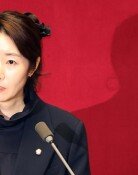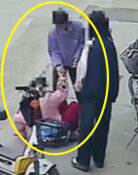Ruling and opposition parties should eliminate SOC general election pledges
Ruling and opposition parties should eliminate SOC general election pledges
Posted April. 13, 2024 07:41,
Updated April. 13, 2024 07:41
It was revealed that fulfilling the social overhead capital (SOC) pledges made by the ruling and opposition parties during the 22nd general election campaign would require at least 278 trillion won. Even when considering only the pledges made by the elected candidates who responded to inquiries, an immense financial commitment, equivalent to 40% of this year's government budget, is necessary. The total cost could escalate further if the pledges of non-responding candidates are factored in. With repeated unfulfilled promises, voter confidence in general election pledges is waning.
Upon inquiry by The Dong-A Ilbo reporting team and the Manifesto Implementation Headquarters, 166 elected candidates responded to their core pledges and plans for financial resourcing. Among their top five pledges, 73% were related to SOC projects, notably infrastructure expansion. However, six out of 10 SOC pledges requiring financial backing were deemed practically unquantifiable.
In relation to the government-promoted GTX, 15 elected candidates pledged to extend the route to their districts, establish a branch line, or construct a new stopping station, with each commitment costing over 1 trillion won. There are numerous other construction and civil engineering promises whose feasibility is questionable. In Gyeonggi Province, some elected officials pledged to attract and develop a ‘3rd Lotte World’ and ‘2nd Everland’ in their districts, but these companies have denied such plans.
The development pledges of the leaders of the ruling and opposition parties alone predict hemorrhaging spending worth tens to hundreds of trillions of won. Both the ruling and opposition parties have promised to make railways underground and provide reimbursement for nursing care expenses so the money will be released one way or another. Unlike presidential and local elections, the side effects of the election law, which does not require candidates for general elections to disclose how they will raise funds for their pledges, are increasing. Meanwhile, the ratio of national debt to gross domestic product (GDP) exceeded 50% for the first time in history last year. There is a need to boldly eliminate unnecessary pledges before the launch of the new National Assembly, eliminating ’no-questions-asked' pledges that only cost money without any real benefit.
If these elected officials proceed with their unrealistic promises, it will inevitably impose a significant burden on the finances of both the central government and local administrations, already strained by debt. The release of related budgets and increased money supply could potentially stimulate prices once again. With inflation exceeding 3% for two consecutive months, the Bank of Korea's Monetary Policy Committee recently decided to maintain the base interest rate at 3.5% per annum. The anticipated timing for a necessary base interest rate cut to rejuvenate the economy continues to be postponed. The prolonged period of high interest rates ultimately affects ordinary citizens and self-employed individuals grappling with loan obligations.







